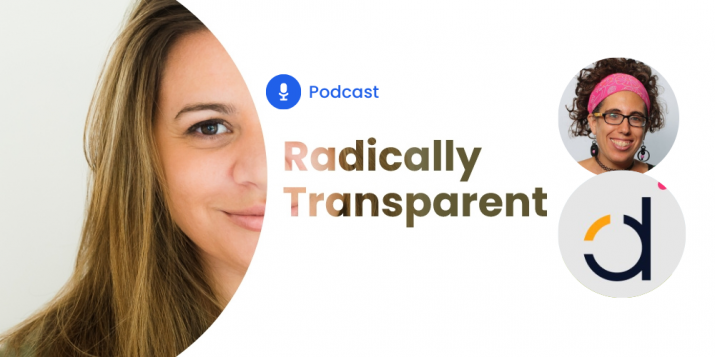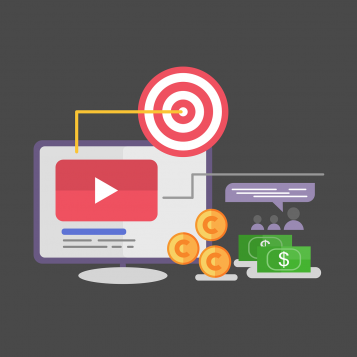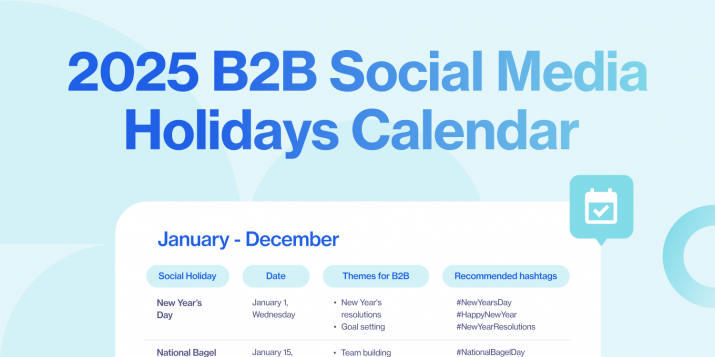
10 best customer data platforms to power cross-channel marketing
Almost 1,500 years ago, the general and philosopher Sun Tzu wrote that the best way to win a battle is to “know your enemy.” Change a word or two, and that could be equally solid advice for today’s professional marketers. Customers aren’t your enemy — but if you want to win the battle for their hearts, minds, and revenue, it pays to know them well.
Savvy marketers looking to gain ground in hotly contested markets will turn their attention to Customer Data Platforms (CDPs). These are invaluable resources for gaining insights into the minds of customers and potential customers.
Let’s take a deep dive into CDPs and learn what they are, what makes them different, who they’re for, and the top 10 currently available.
What is a CDP?
A CDP is a software package that creates a centralized hub for (mostly first-party) customer data. It pools data from multiple sources into a single, unified customer database. They are designed to identify individual customers across all channels and devices. By making intelligent connections between collected data points, they create a customer profile. Think of it as a CRM on steroids, in the cloud; connected to and feeding your customer or lead acquisition platforms with data in real-time.
This profile can be used as a predictive model to determine how to reach and retain that customer. Customer profiles can be assembled from fragmentary data collected from mobile devices, point of sale terminals, website, emails, and any other marketing channel you can think of.
CDP Vs. DMP Vs. CRM: setting the record straight
There can be confusion over the differences between CDPs, DMPs (data management platforms), and CRM platforms (customer relationship management). It’s not just the similar acronyms — these products do share some overlapping features. However, the differences are significant.
DMPs collect anonymous data from the web and other digital sources to show the big-picture patterns and demographics driving customer decisions.
CRM systems can track your existing customers. However, they aren’t designed to identify the anonymous potential customers interacting with your marketing elements that have not yet made a purchase.
DPMs are usually used to aggregate or pool third-party data into a single point and leverage that data for better messaging, targeting, etc.
Naturally, in today’s digital eco-system, where software providers are extremely concerned with staying innovative and relevant there is a lot of overlap. It is not uncommon for DMP companies to offer a CDP solution (Adobe is a great example) or for CRM companies to add a CDP to their offering (Salesforce, for example).
Regardless, the idea behind the CDP is to bring customer data together with a greater focus on first-party data. This is not only better for simplified compliance with GDPR and other privacy/consumer protection regulations, it’s also better for leveraging your own data in impactful ways.
Recommended for further reading
Who is a CDP For?
Most CDP providers design for marketers as end users, rather than IT departments. CDPs do not require a high level of dependence on IT or development teams. This gives marketing departments granular control over customer data collection, segmentation, and campaign orchestration.
For retailers, the benefits of CDPs are probably readily apparent. But are CDPs for B2B companies, too?
In fact, CDPs have tremendous potential for B2B companies. The data in a B2B CRM is highly valuable, and if leveraged with external data sources, it can be used to create targeted, effective ads that get in front of large B2B buyers.
The top 10 customer data platforms (CDPs) to power cross-channel marketing:
When it comes to CDPs, there are many feature-rich options available to fit your particular needs. Here are ten of the best:
1. Optimove

For Optimove, the key ingredient to an effective CDP is the strong grasp of the data science underpinning its analytics and insights. Optimove uses unique technology and a science-based approach. It delivers and manages highly segmented, behavior-driven customer messaging in realtime across any relevant marketing channels.
The CDP is offered on a monthly subscription basis at multiple pricing tiers. Optimove’s clients include such big brands as Staples and Family Dollar. They report being highly satisfied with the platform’s ease of use, analytics quality, and customer support. Clients also praise Optimove’s ability to reduce churn rate.
2. Oktopost
![]()
Strictly speaking, Oktopost is not a CDP. The reason we decided to include ourselves on this list is for companies who don’t yet have a CDP, Oktopost offers a significant, yet less difficult to implement, step on the way to adopting a CDP. For B2B and considered purchase companies, CDPs can also offer a solution to the attribution mess that can be omni-channel marketing.
Through integration with marketing automation and CRM platforms, Oktopost closes the gaps of first-party data to create a B2B CDP that is ready to use and leverage right out of the gate. This is actually a very cost-effective and quick solution for companies that already have a robust CRM and marketing automation operation.
We’re raising the banner on demonstrating the true ROI of social media marketing campaigns. Therefore, our platform has been designed around making direct connections between social media interactions on Facebook, Twitter, LinkedIn, and other sites; and the specific customer interactions that result from those posts and updates.
3. Exponea

Realtime updates and AI-driven personalization power this CDP. Exponea is designed to be a single solution for customer acquisition, conversion, and retention. It handles data gathering and communication along the entire customer journey across all channels, devices, and touchpoints.
Exponea also integrates with a wide range of third-party tools. Built from the ground up, Exponea offers a variety of packages at competitive pricing levels.
Clients report enjoying the way Exponea empowers marketing departments. It does so by providing them with extensive analytic capabilities, campaign management tools, and machine learning features that optimize their predictive recommendations. This platform also gets high marks for being easy to use and frequently updated.
4. Listrak

Listrak’s platform is built to deliver results for retailers in the form of greater engagement, higher revenue, and stronger customer loyalty. This CDP unifies customer data from all sources into a single centralized platform.
It can generate unique data visualizations, analyze customer behavior patterns, and craft smart, hyper-personalized, and micro-segmented communications that speak directly to customers’ prime interests and concerns.
Serving clients such as Papyrus, Peet’s Coffee & Tea, and T-Mobile, Listrak reportedly has a steeper learning curve than some other CDPs listed here. However, Listrak comes recommended for its versatility, automation capabilities, and support team.
5. Segment
![]()
One of Segment’s primary goals is to make integration easy and seamless. It accomplishes this with a platform that has a powerful, easy-to-use API and an extensive network of partners.
The idea behind the design makes it easy to incorporate a new app or service into your analytics, marketing campaigns, or data storage solution. When you do so, Segment will be there with the digital infrastructure to make it happen with minimal labor and hassle.
Strictly speaking, Segment is more of a Data Warehouse. It can aggregate data from several different sources, house it, and then push that data into other channels. It doesn’t offer most of the features offered by enterprise CDPs but its affordable rate can help smaller companies leverage its capabilities.
Features include real-time monitoring, dynamic UI with modifiable dashboards, and raw data access for manual analytics and interpretation. Segment offers a free package, a $120 per month subscription for small businesses, and custom pricing for larger implementations.
6. Tealium
![]()
The Tealium Universal Data Hub platform includes the AudienceStream CDP. The platform pulls fragmented data from widespread sources into a unified whole. This enables businesses to gather, interpret, analyze, and act on customer data, while rigorously safeguarding the security and privacy of sensitive customer information.
AudienceStream allows clients to set up custom rules for customer profiles, establish identities across devices and channels, and take actions in realtime. Learning how to use AudienceStream effectively may take some time and commitment, but the results can be well worth it. Tealium clients include the Utah Jazz, St. Joseph’s Health, and other notable organizations.
7. CaliberMind

CaliberMind is an intelligent platform that uses chain-based attribution to weigh the actual value of each channel’s contribution to your customer journeys. It’s designed to manage customer accounts through their entire life cycle.
CaliberMind empowers marketing and sales teams with data-derived insights that help them evaluate their campaign performance, and determine which channels are getting results. Pricing starts at $1,000 per month, scaling upward based on the number of records and connections. Clients include Frontline Education, Everbridge, and Fidelis Cybersecurity.
8. ActionIQ

ActionIQ is an enterprise-scale, cloud-based CDP designed to help marketers and analysts manage cross-channel campaigns powered by customer data. It provides an accurate picture of by measuring lift across all channels.
ActionIQ’s customers include industry leaders such as The New York Times, Saks Fifth Avenue, Verizon, and Gap Inc.
9. mParticle

mParticle is intended to be a fast, efficient vehicle for centralizing and synchronizing customer data. It attempts to provide comprehensive, holistic customer profiles that offer true insights and understanding.
mParticle is designed to use customer data to increase user engagement, build loyalty, and reduce vendor costs.
Clients like Venmo and Postmates have used it to capture the full range of marketing interactions with customers on all relevant devices and channels.
10. Datorama

Datorama provides centralized marketing intelligence on a robust and flexible platform. Specializing in cleaning up and presenting data in an organized, clear, and actionable format, Datorama offers cross-channel visibility and AI-powered analytics.
It easily integrates with Google Analytics and many other third-party resources. Their pricing structure is based on data row usage rather than the number of customers. Datorama
counts Pepsi, Unilever, and Ticketmaster among its clients.
Conclusion
Knowing your customers isn’t just about coming up with campaigns and ads that will get them to keep clicking and browsing. When you really know your customers, you can see the pathways toward providing them with the products and experiences they truly want. A CDP is a terrific tool to point your company in that direction.
When it comes to choosing a CDP provider, companies have many choices. Finding the choice that delivers more conversions, greater retention, increased revenue, and the highest ROI will take some thoughtful consideration. Marketing managers, and executives in charge of selecting a CDP solution, need to match up the specific needs and challenges of their organization with the CDP provider that’s best equipped to meet them. In this way, a company will derive the many benefits of the customer profiles produced by CDPs.


